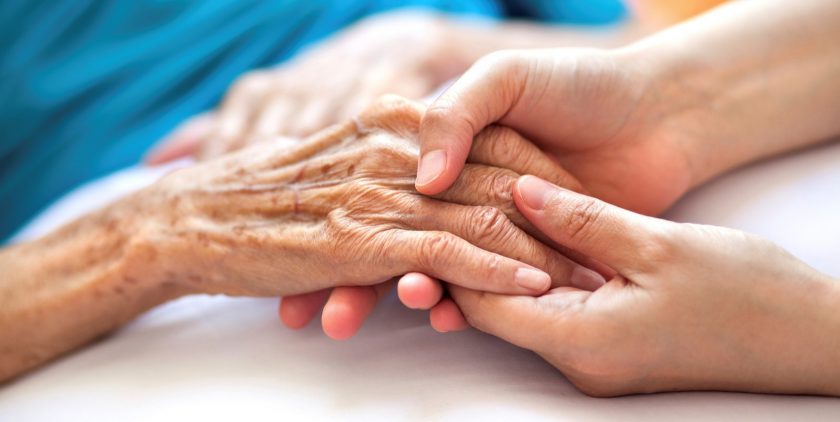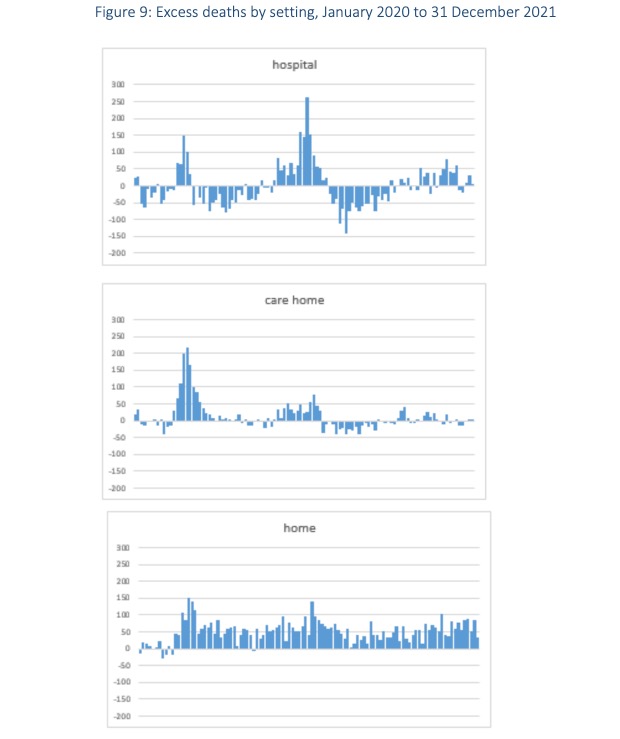Renewed calls for Wales specific pandemic inquiry after High Court ruling on English untested patient discharge to care homes policy

The High Court has found the policy of discharging untested asymptomatic patients from hospital to care homes in England was unlawful – a practice that also took place in Wales.
Care homes have been an obvious area of concern with a number of older people are living closely together, many of whom will have underlying health conditions. Early in the pandemic people discharged to care homes from hospital were not always subject to rigorous testing for Covid-19.
A High Court judgement released yesterday, explained: “The decisions of the Secretary of State for Health and Social Care to make and maintain a series of policies contained in documents issued on 17 and 19 March and 2 April 2020 were unlawful because the drafters of those documents failed to take into account the risk to elderly and vulnerable residents from non-symptomatic transmission, which had been highlighted by (among others) Sir Patrick Vallance in a radio interview as early as 13 March.
“Non-symptomatic transmission would mean that one elderly patient moved from hospital to a care home could infect other residents before manifesting symptoms, or even without ever manifesting symptoms.
“The judges found that it was irrational for the DHSC not to have advised until mid-April 2020 that where an asymptomatic patient (other than one who had tested negative for COVID19) was admitted to a care home, he or she should, so far as practicable, be kept apart from other residents for 14 days.”
The testing climate back at the start of the pandemic in 2020 was in stark contrast to what we have got used to, with very limited numbers tests available due to lack of wider testing capacity.
At one point (14th April 2020) specific named people had to be put forward for tests and days later a then new drive-thru testing centre was for specific critical workers. At the same time (29th April 2020) concerns were raised about the lack of public data around care home testing, infections and deaths.
In Wales the policy of discharging untested asymptomatic patients into care homes – as part of an emergency policy aimed at freeing up space in hospitals – carried on despite England changing the testing policy.
The specific issue of testing people during discharge from hospitals into care homes was raised in the Senedd at the time (full transcript here), with Delyth Jewell MS challenging the First Minister on the 29th April 2020.
Speaking at the time, she said: “Until the end of last week, care home residents were routinely moving between hospital and care homes without being tested, but that’s been rectified now.
“But I’ve spoken to one care home manager who thinks it’s very likely that the virus entered the care home through that route, and a request for a resident to be tested before leaving hospital was denied.”
First Minister Mark Drakeford replied at the time: “What the Welsh Government did was to follow the clinical advice that we had that testing somebody leaving a hospital who had no symptoms of coronavirus, going to a care home, was not something that offered you any clinical assurance.
“Anybody with symptoms was tested all along. It was only people who had no signs at all of coronavirus that weren’t tested, and the clinical advice to us was that a test of that person would offer you no reliable assurance that would make any difference to the decisions that were being made about that person.”
The First Minister at the time said that change did not take place due to clinical advice, but to ‘give confidence’.
He said: “The reason why we changed the guidance was not because the clinical advice had changed, but because we recognised the need to give confidence to people in the sector, that there were anxieties about people being discharged from hospital without a test even when that person had no signs of coronavirus at all, and because we recognise those concerns and the need to give confidence to people in that sector, we changed our arrangements so that people leaving hospitals, whether they have any symptoms or not of coronavirus, are now tested before they leave, and, indeed, we’re extending that to any setting that somebody enters a care home from—not just from hospitals, but anywhere somebody entering a care home is moving from in Wales, that person will now be tested for coronavirus.”
On 16th May 2020 it was announced that all care home residents and staff were able to access UK Government testing.
On the 21st May 2020 the Older People’s Commissioner for Wales called for the Welsh Government to be investigated by the Equality and Human Rights Commission (EHRC) over concerns that older people’s human rights may have been breached in care homes, saying, “The situation we have seen in our care homes during the Covid-19 pandemic has been a tragedy, and I have concerns that older people’s rights may not have been sufficiently protected, in these settings and across health and social care more widely.”
It took until mid May 2020 before wider full testing was rolled out in care homes, something that at the time was noted by opposition parties “…the refusal to do so up to now should be the subject of examination in the future inquiry.”
Even in June 2020 we reported internal health board dashboard data, and questions we put to the First Minister on care home transfer testing with some care staff in the care sector relating to us at the time a ‘real reluctance’ to accept new people due to ‘pure fear’ of introducing the virus into care homes.
As we reported earlier this month the ONS figures have been analysed by the Technical Advisory Cell (more here) that included the below graph of excess deaths by setting.
Deaths in care homes refer to deaths which occurred in the setting, and not to care home residents (who could have died in other settings), as was noted: “There was a pronounced peak in excess deaths in care homes during the first peak period of the pandemic (around April 2020), with a much lower number of excess death during the second peak period.”
Commenting on the news yesterday of the verdict in England, Welsh Conservative leader Andrew RT Davies MS said: “Let’s not forget that after England introduced mass testing in care homes, the Labour First Minister of Wales – Mark Drakeford – said he could see “no value” in testing in Welsh care homes, and the then-Welsh Health Minister, now leadership contender said he did not understand the rationale behind it.
“It was a whole month after mass testing was put in place in England that it was brought forward in Wales.
“These are the exact issues that a Wales-specific Covid inquiry would investigate, which is why it is totally unacceptable for this arrogant Labour Government to block one as it runs scared of scrutiny.”
First Minister Mark Drakeford has continually ruled out holding a Wales only inquiry, despite being challenged on why decisions that have affected Welsh lives and livelihoods won’t be scrutinised in Wales.
Instead Mr Drakeford has said that provided there is a specific Welsh focus in the UK-wide inquiry, he believes that is “the best way to move ahead.”
The UK Government confirmed it will hold a UK-wide inquiry and back in August Scottish First Minister Nicola Sturgeon confirmed an independent inquiry into the Scottish Government covid response would also take place.
The nature of the UK wide inquiry has also come under more scrutiny , with Plaid Cymru writing to the First Minister to ask for the record to be corrected on his statement regarding the UK Government’s ability to lead the inquiry into COVID-19 in Wales.
Responding to a question from Heledd Fychan MS, the First Minister stated that the “…the UK Government will not lead the inquiry. That will be the responsibility of its independent chair, Baroness Heather Hallett.”
However, Plaid Cymru’s spokesperson on health and care, Rhun ap Iorwerth MS states his the letter that this is in direct contradiction to a statement made by Baroness Heather Hallett, which states that the Prime Minister has the final decision on the Terms of Reference.
Rhun ap Iorwerth MS said, “When news arrived that the Prime Minister had received a fine for breaking the law, the First Minister was amongst the many calling for his resignation. Yet we have a situation where the First Minister is happy to trust that same person with responsibility for running an inquiry into how COVID-19 was handled in Wales based on the incorrect assumption that he is somehow not in charge of it.
“Just this week we have another reminder of the importance of a COVID inquiry, following the ruling from the High Court that government policies on discharging untested patients from hospital to care homes in England was unlawful. These same practices were employed by the Labour Welsh Government for patients in Wales.
“The First Minister must correct his statement, and answer the original question from my colleague: What assessment has the First Minister made of the UK Government’s ability to lead the inquiry into COVID-19 in Wales?”
“In denying us a Wales-specific inquiry, the Labour First Minister handed all control to Boris Johnson.”
Spotted something? Got a story? Send a Facebook Message | A direct message on Twitter | Email news@north.wales







